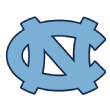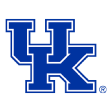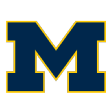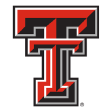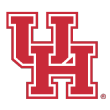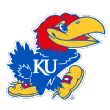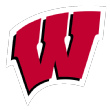Which teams in our Power Rankings have best chance to reach Final Four
We’re less than two weeks away from Selection Sunday and the most fascinating postseason event in the world, the NCAA tournament. Degenerate gamblers, lawyers, doctors, teachers, stay-at-home parents and store clerks alike will be united in their quests to win their bracket pools and the cash prizes attached to them.
We’re here to help, we think, by sorting through the reasons the teams ranked in Jeff Borzello’s Power Rankings this week will (or won’t) reach the Final Four.
Virginia, Duke and North Carolina all have top-seed cases … if they take care of business this week.
Thirty-two conferences, 292 games. Want to watch them all? We got you.
The WCC and SEC championships generally play out as expected. But the A-10 and Horizon League? Buckle up.
Why they will: Virginia’s defense is among the nation’s best, which is the norm in Charlottesville. But Tony Bennett also is coaching the most efficient offense of his tenure, a group that’s connecting on 40 percent of its 3-pointers while being led by a pair of NBA prospects, Ty Jerome and De’Andre Hunter.
Why they won’t: Last season’s loss to UMBC highlighted Virginia’s troubling trend of falling short in the NCAA tournament under Bennett. You can’t blame folks for their limited faith in a Virginia team that has been a 1-seed three times since 2014 (a 2-seed and 5-seed in the other years) but reached the second weekend just twice in that stretch.
Why they will: Mark Few’s team boasts the No. 1 offense on KenPom.com and is blessed with All-America candidates Rui Hachimura and Brandon Clarke. The Bulldogs also have the only win in the country over Duke at full strength for 40 minutes, along with 15 victories by 30 points or more this season.
Why they won’t: In losses to Tennessee and North Carolina, Grant Williams, Admiral Schofield, Cam Johnson and Luke Maye combined to make 53 percent of their shots inside the arc and 61 percent of their 3-pointers. We’re not sure whether Gonzaga can consistently defend against athletes of that ilk to reach the Final Four, especially since the team hasn’t faced a real test in months.
Why they will: When Duke is healthy, Zion Williamson and RJ Barrett lead the best team in America, a group that has made 58.8 percent of its shots inside the arc this season. Plus, the path to the Final Four will demand wins over elite teams, and no squad in America can match Duke’s pool of high-level W’s (Texas Tech, Virginia twice, Kentucky).
Why they won’t: A week ago, Mike Krzyzewski spoke as if Williamson’s return from a Grade 1 knee sprain was imminent, but after his team’s win over Miami on Saturday, he said the phenom wasn’t close to competing. Most expect Williamson to return at some point this season, but the Blue Devils won’t be a Final Four team unless he returns at 100 percent, a more significant concern than their 31 percent clip from the 3-point line.
Why they will: The Tar Heels have manufactured the best offense in ACC play by any team not named Virginia this season. They’ve lost just one game since Jan. 12 and put together an impressive stretch, as freshman Coby White (62 points, 12-for-22 combined from the 3-point line in back-to-back wins) is playing like a young guard who can lead this squad to Minneapolis.
Why they won’t: Their ACC opponents have made 48 percent of their shots inside the arc, and they’ve surrendered 79 points or more in recent weeks to offenses ranked outside the top 50 on KenPom.com. Also, it’s already March and Nassir Little, a projected lottery pick, is still an enigma despite being the kind of athlete North Carolina will probably need to plow through a bunch of ambitious teams this month.
Why they will: Rick Barnes has a group of veterans who won’t break under the pressure of the bright lights in the NCAA tournament. The Vols force you to defend NBA prospects Grant Williams (19.3 PPG) and Admiral Schofield (16.4 RPG), while also creating problems with a fleet of shifty, talented guards who stabilize one of America’s best offenses.
Why they won’t: Only three programs have solved the Tennessee quagmire. And all three of them (LSU, Kentucky and Kansas) possessed the combination of size and athleticism that opposing teams could use to interrupt Tennessee on its path to the Final Four.
Why they will: Kentucky has launched one of the most impressive turnarounds this year and evolved into a national title contender behind the emergence of PJ Washington (14.9 PPG, 7.7 RPG, 44 percent from beyond the arc), now an All-America candidate, and Tyler Herro, a reliable shooter who has made 42 percent of his shots from the 3-point line in SEC play.
Why they won’t: Entering Saturday’s loss to Tennessee, Kentucky’s opponents had made 49 percent of their shots inside the arc when Herro, Reid Travis (who is expected to return at some point from a knee injury) and Ashton Hagans — all listed as average defenders in isolation by Synergy Sports — were on the floor together, per hooplens.com. That reality makes potential foul trouble for Washington — a challenge in the first half against the Vols — a nightmare scenario that could ruin Kentucky’s Final Four dreams.
Fill out your bracket for a chance to win $10,000 in Amazon.com gift cards and a trip for two (2) to the 2019 Maui Jim Maui Invitational! Fill out your brackets
Why they will: This is another versatile, disciplined unit in Ann Arbor that’s working on its seventh consecutive season with a top-10 finish in turnover percentage on KenPom.com. Its top-five defense has anchored a Final Four-worthy program that has collected wins over Villanova, North Carolina, Wisconsin and Purdue.
Why they won’t: The immediate concern for this team’s Final Four hopes is the status of Charles Matthews, who was on the bench in a walking boot during Sunday’s win at Maryland and will not play until he’s “pain free” from an ankle injury, coach John Beilein said. The other problem that could hurt this team is its 33.9 percent clip from the 3-point line in league play, which will be the program’s worst mark since 2009-10 if it stands.
Why they will: The Spartans have Cassius Winston, a Wooden Award candidate who has carried this squad and produced heroic efforts (19.2 PPG, 7.6 RPG, 43 percent from the 3-point line) throughout the season. Surrounded by gritty veterans and an experienced coach, Winston can lead this team to the Final Four.
Why they won’t: The Spartans have succeeded in the Big Ten, America’s deepest league. But there will be moments in the NCAA tournament when Tom Izzo will wish he had Joshua Langford, out for the season with a foot injury, and Nick Ward, potentially out for the season with a fractured left hand.
Why they will: This is one of the most talented teams in America, and its road win over Kentucky and its home win against Tennessee in Baton Rouge last month proved as much for Will Wade’s group. The Tigers are also one of America’s top offensive rebounding teams, which means Naz Reid, Tremont Waters & Co. could gobble up second-chance opportunities on their way to the Final Four.
Why they won’t: This LSU squad has surrendered 80 points or more to Florida, Arkansas and Oklahoma State, all middle-of-the-pack offensive teams in their respective leagues. Their SEC opponents have made 52.2 percent of their shots inside the arc, a daunting mark for a squad with national title ambitions.
Why they will: With its constricting defense, Texas Tech, which has allowed just 75.8 points per 100 possessions this season, will be a handful for any opponent it might see on the path to the Final Four. And Jarrett Culver (17.9 PPG, 3.7 APG) is a closer who will hit clutch shots on the big stage.
Why they won’t: If teams can record an above-average offensive effort and corral Culver, they’ll have a chance to stop the Red Raiders before the Final Four. Culver is an All-American who has made 46 percent of his shots inside the arc and 25 percent of his 3-pointers in his team’s five losses.
Why they will: Carsen Edwards (23.5 PPG) is a force for the Boilermakers and an impressive playmaker who has led this program to the top of the deepest league in the country. They have the Big Ten’s best offense, a critical element in their current 13-1 stretch.
Why they won’t: The Boilermakers have surrendered nearly a point per possession in league play thus far. And their nonconference slate is decorated with losses (Florida State, Texas, Virginia Tech) to opponents backed by the bouncy athletes who could challenge this up-and-down defense in the NCAA tournament.
Why they will: Kelvin Sampson’s program has been one of the most consistent teams in the country, with just two losses (Temple, UCF) this season and wins over LSU, Utah State and Cincinnati. The Cougars also lead the American Athletic Conference with a 38.2 percent clip from the 3-point line.
Why they won’t: They don’t have an offensive alternative when Corey Davis and Armoni Brooks are off. In the Temple loss, the duo went 6-for-23, and Brooks went 1-for-5 from the 3-point line in Saturday’s loss to UCF. If they’re in a rut in the NCAA tournament and those two are struggling, who will save them?
Why they will: This isn’t Bill Self’s best team, but Dedric Lawson is one of the most dominant stars he’s ever had in his tenure at Kansas. Lawson is the reason this group has recovered from Udoka Azubuike‘s season-ending injury to secure quality wins (Kansas State, Texas Tech, Iowa State, Baylor) and go 5-1 over their past six games without Lagerald Vick to stay in the Big 12 race.
Why they won’t: Many would agree this Kansas team lacks the consistent excellence to make a Final Four run in this imposing field. The team’s freshman five-star wing, Quentin Grimes, has not been a reliable threat, and depth remains a concern for a squad that might not get Vick (44 percent from the 3-point line) back this season.
Why they will: College basketball’s NCAA tournament field will be stacked with squads that can stretch the floor and hurt teams from the 3-point line. And this Virginia Tech squad is one of them, connecting on nearly 40 percent of its 3-pointers, which opens up the lane for all-ACC candidate Kerry Blackshear (56 percent inside the arc in ACC play) to go to work.
Why they won’t: Virginia Tech has wins over quality teams without Justin Robinson (14.4 PPG, 41 percent from the 3-point line), but he’s a critical element for this program’s postseason ambitions. With no guarantees Robinson returns from his foot injury, the arduous task (0.99 points per possession allowed without Robinson versus 0.89 PPP when he’s available this season) of chasing a Final Four trip would be more difficult.
Why they will: Markus Howard is one of the country’s most impactful offensive players. It’s not crazy to imagine the veteran guard putting up 35-plus for four consecutive games on the way to a Final Four run for a Marquette team that’s No. 1 in defensive efficiency in Big East action.
Why they won’t: Any magical scenario for Marquette will depend upon the reliability of Theo John, who is averaging 2.3 blocks per game. If he’s wrestling with foul trouble — too often the norm for him — then the Golden Eagles could lose their vital rim protector, which could end their time in the NCAA tournament long before the Final Four.
Why they will: With Ethan Happ (17.8 PPG, 10.1 RPG), Wisconsin has bounced back from its 1-3 stretch to start the calendar year and won 12 Big Ten games. His passing ability (4.7 APG) creates space on the perimeter for the top 3-point shooting team in the league, too.
Why they won’t: You can’t trust this team down the stretch in tight games in the NCAA tournament. Happ has made just 45 percent of his free throws this season, and the Badgers have made only 60.2 percent of their attempts in Big Ten play, ranking last in the league.
http://www.espn.com/espn/rss/news



